Abstract
Nitrogen nutrition strongly affected the growth rate of young sunflower (Helianthus annuus L.) leaves. When plants were grown from seed on either of two levels of N availability, a 33% decrease in tissue N of expanding leaves was associated with a 75% overall inhibition of leaf growth. Almost all of the growth inhibition resulted from a depression of the daytime growth rate. Measurements of pressure-induced water flux through roots showed that N deficiency decreased root hydraulic conductivity by about half. Thus, N deficiency lowered the steady-state water potential of expanding leaves during the daytime when transpiration was occurring. As a result, N-deficient leaves were unable to maintain adequate turgor for growth in the daytime. N deficiency also decreased the hydraulic conductivity for water movement into expanding leaf cells in the absence of transpiration, but growth inhibition at night was much less than in the daytime. N nutrition had no detectable effects on plastic extensibility or the threshold turgor for growth.
Full text
PDF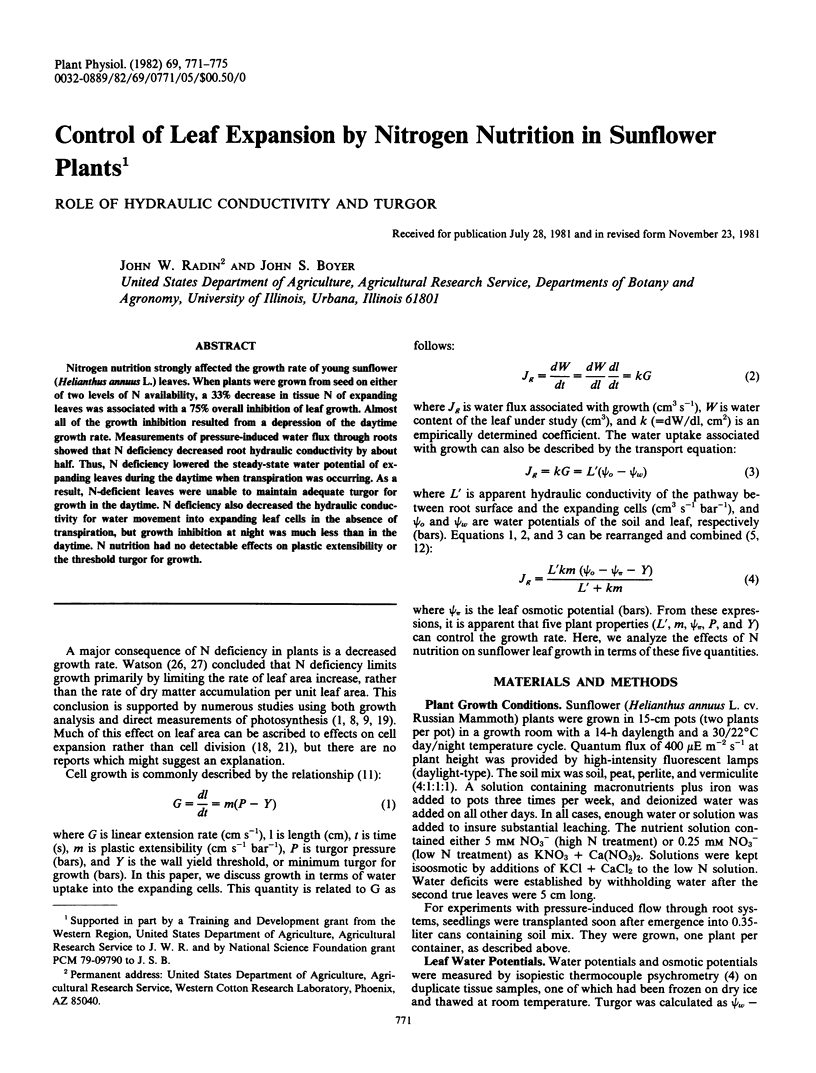
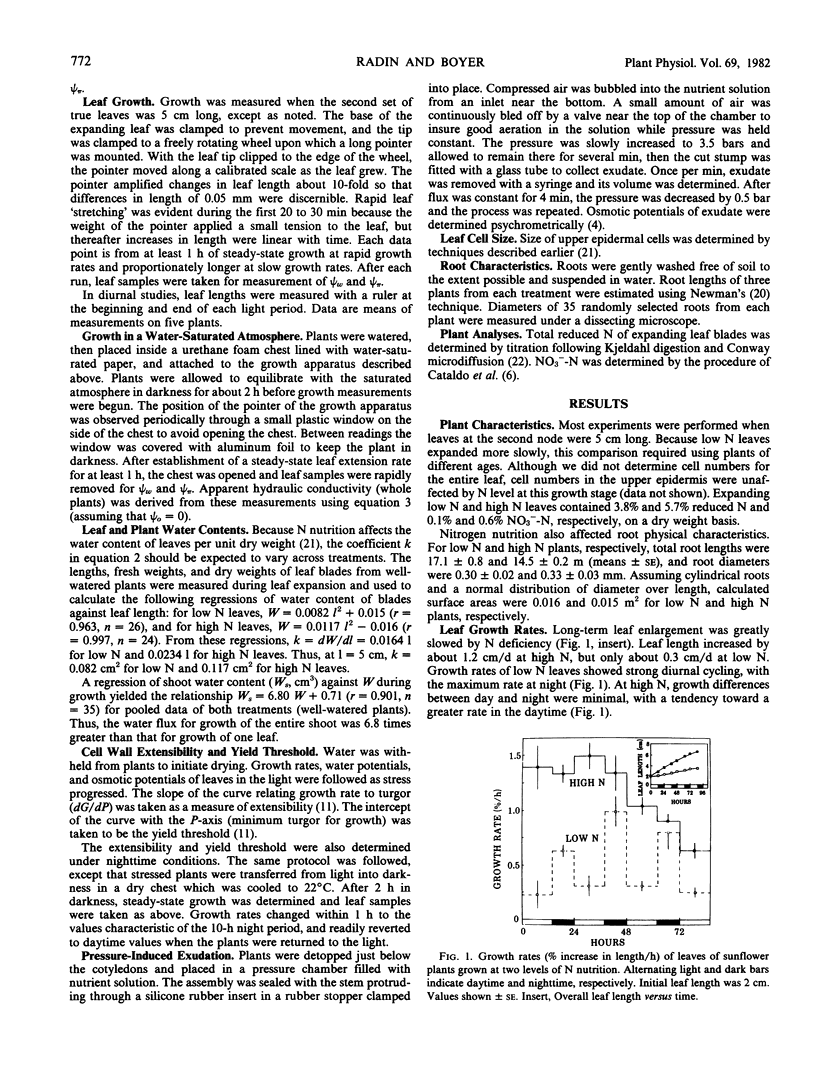
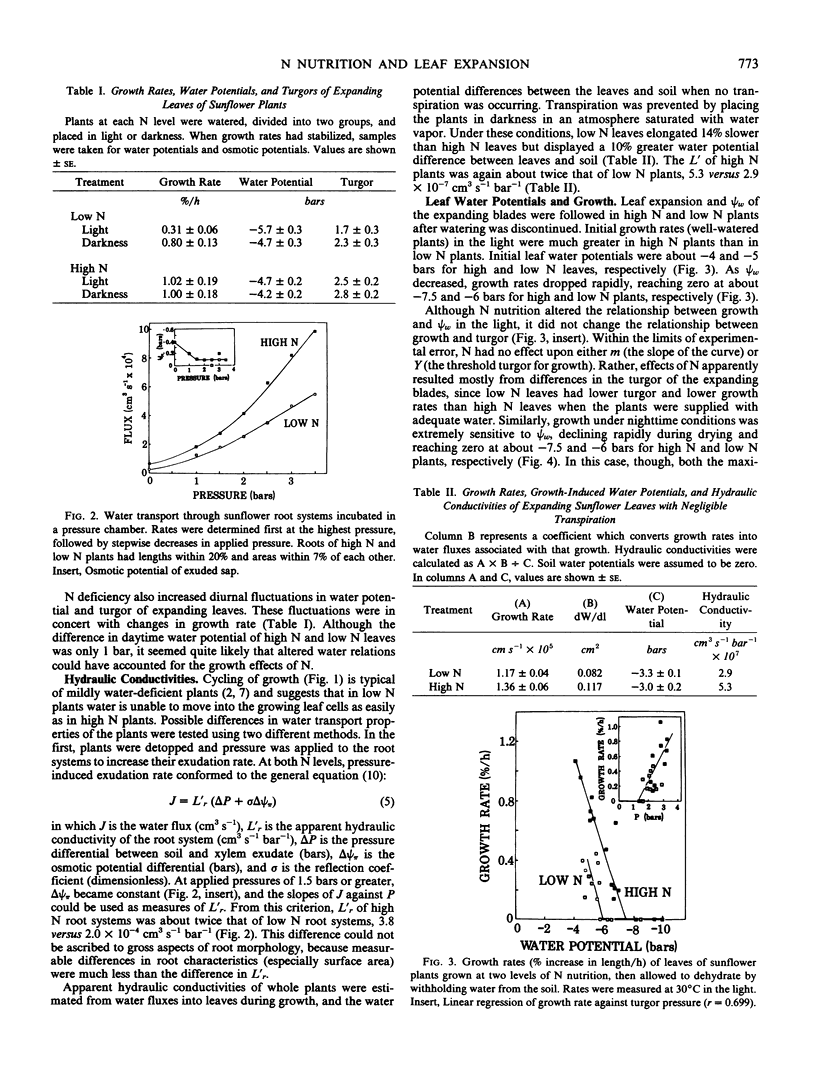
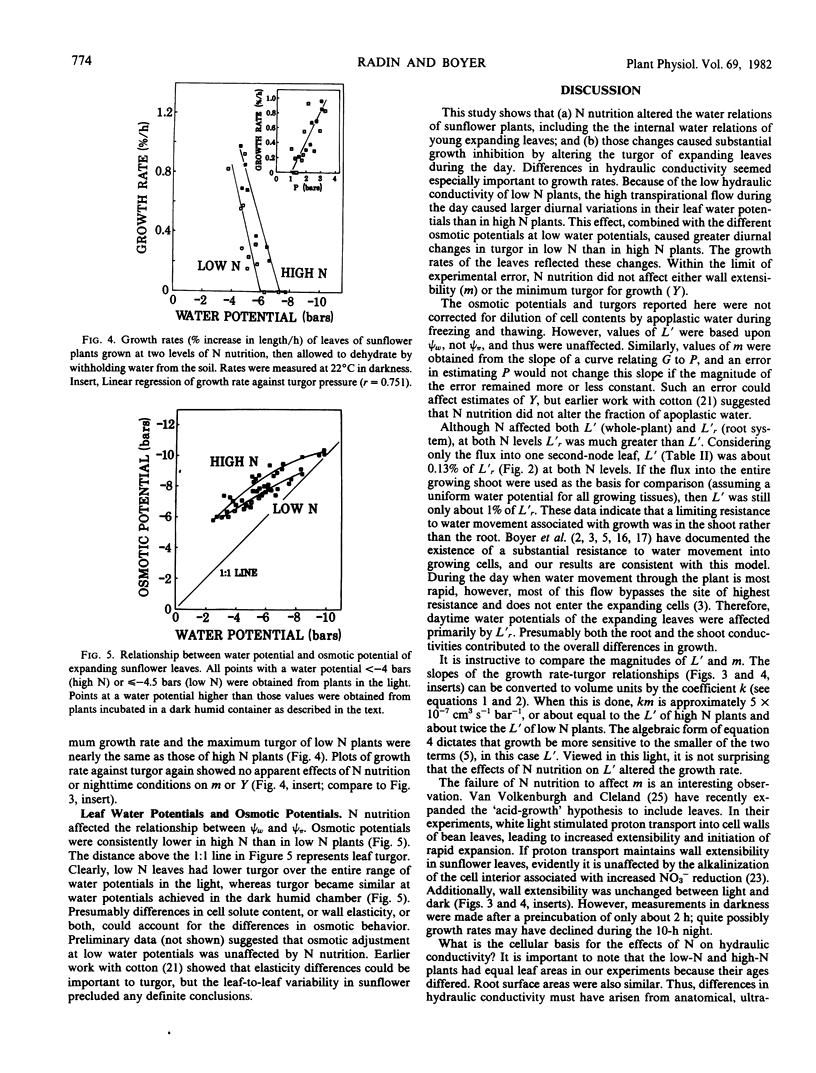
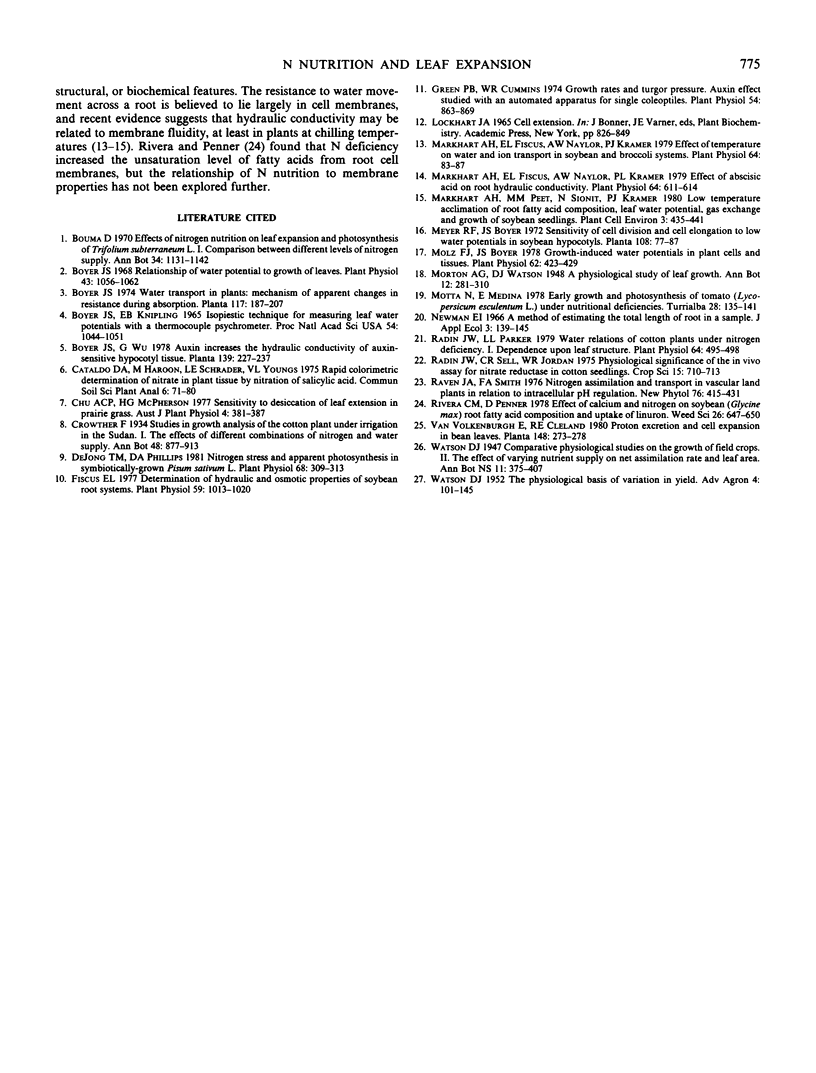
Selected References
These references are in PubMed. This may not be the complete list of references from this article.
- Boyer J. S. Relationship of water potential to growth of leaves. Plant Physiol. 1968 Jul;43(7):1056–1062. doi: 10.1104/pp.43.7.1056. [DOI] [PMC free article] [PubMed] [Google Scholar]
- Dejong T. M., Phillips D. A. Nitrogen Stress and Apparent Photosynthesis in Symbiotically Grown Pisum sativum L. Plant Physiol. 1981 Aug;68(2):309–313. doi: 10.1104/pp.68.2.309. [DOI] [PMC free article] [PubMed] [Google Scholar]
- Fiscus E. L. Determination of hydraulic and osmotic properties of soybean root systems. Plant Physiol. 1977 Jun;59(6):1013–1020. doi: 10.1104/pp.59.6.1013. [DOI] [PMC free article] [PubMed] [Google Scholar]
- Green P. B., Cummins W. R. Growth rate and turgor pressure: auxin effect studies with an automated apparatus for single coleoptiles. Plant Physiol. 1974 Dec;54(6):863–869. doi: 10.1104/pp.54.6.863. [DOI] [PMC free article] [PubMed] [Google Scholar]
- Markhart A. H., Fiscus E. L., Naylor A. W., Kramer P. J. Effect of abscisic Acid on root hydraulic conductivity. Plant Physiol. 1979 Oct;64(4):611–614. doi: 10.1104/pp.64.4.611. [DOI] [PMC free article] [PubMed] [Google Scholar]
- Markhart A. H., Fiscus E. L., Naylor A. W., Kramer P. J. Effect of temperature on water and ion transport in soybean and broccoli systems. Plant Physiol. 1979 Jul;64(1):83–87. doi: 10.1104/pp.64.1.83. [DOI] [PMC free article] [PubMed] [Google Scholar]
- Molz F. J. Growth-induced Water Potentials in Plant Cells and Tissues. Plant Physiol. 1978 Sep;62(3):423–429. doi: 10.1104/pp.62.3.423. [DOI] [PMC free article] [PubMed] [Google Scholar]
- Radin J. W., Parker L. L. Water Relations of Cotton Plants under Nitrogen Deficiency: I. Dependence upon Leaf Structure. Plant Physiol. 1979 Sep;64(3):495–498. doi: 10.1104/pp.64.3.495. [DOI] [PMC free article] [PubMed] [Google Scholar]
- Twente J. W., Twente J. A. Regulation of hibernating periods by temperature. Proc Natl Acad Sci U S A. 1965 Oct;54(4):1044–1051. [PMC free article] [PubMed] [Google Scholar]


